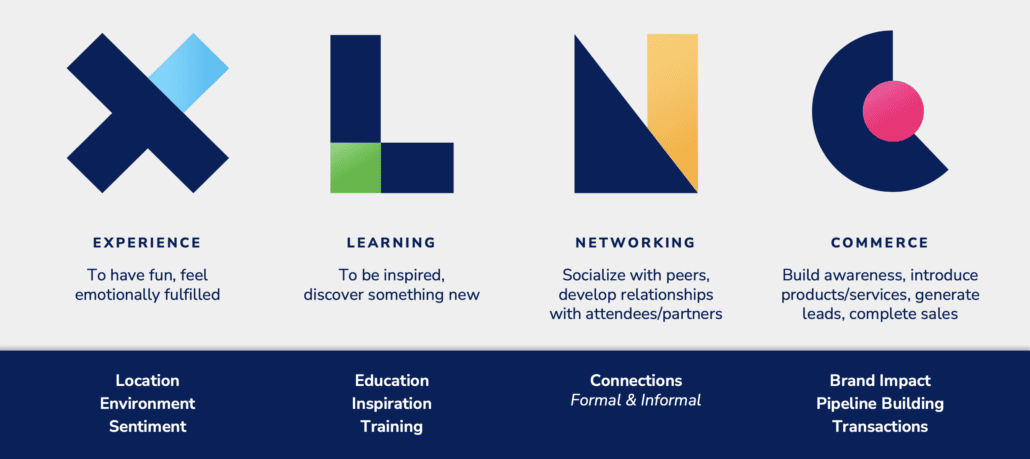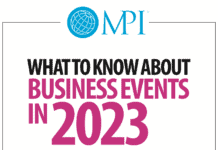 There’s a disconnect between what meeting and event organizers provide and what attendees — and exhibitors — really want. The latest Freeman Trends Report examines where the value gap comes from, and how organizers can give participants more of what they truly value.
There’s a disconnect between what meeting and event organizers provide and what attendees — and exhibitors — really want. The latest Freeman Trends Report examines where the value gap comes from, and how organizers can give participants more of what they truly value.
The measure of success in 2024 is no longer how well your events stack up against their equivalent in 2019, finds Freeman Trends Report: 2024 Attendee Intent and Behavior, the latest trends report from the trade show, exhibit and event company. The challenge now, the report finds, is not just to get attendance numbers back up to 2019 levels — we’re already well on the way to achieving, if not exceeding, those goals. Instead, the challenge now is to provide what attendees value most now — and there is a big gap between what most organizers are providing and what attendees want.
One fundamental error organizers tend to make is to stick with the old way of viewing attendees through an industry-first lens. That may have worked in the past, but now, the Freeman Trends Report concludes, “the research shows that age, gender, socioeconomic status and event type serve as the greatest predictors of attendee values and behaviors.”
For example, baby boomers, who tend to be 85% male, are looking to mentor and create a legacy, while the youngest generation, Gen Z, is more about work-life alignment. In the middle, millennials, who tend to be more female than male, seek authentic personal connections, while Gen X are more about bridging the generations and attaining leadership status, the report finds.
But don’t rely on generational stereotypes, the Freeman Trends Report said. That’s because the one thing the various generations in the workforce share is a desire for personalization and individualization. And they tend to care more about social causes. But again, the biggest value is to be treated as an individual, so it’s important to understand exactly who is planning to come to the event, and why.

That generally boils down to four primary reasons, which the company frames using the acronym XLNC:
eXperience: To have fun and feel emotionally fulfilled
The top takeaway on the X factor is to provide customized, personalized and immersive experiences, not just another fun run or yoga class. And forget celebrity speakers — what attendees value most in general sessions are industry leaders and experts who provide insights on thought-provoking, relevant topics — especially on innovation. Attendees want to leave the keynote feeling informed (38%), inspired (35%) and engaged (13%). One interesting tidbit: males lean more toward wanting to be informed (40%), while females tend toward wanting to feel inspired (47%).
Learning: To learn something new and be inspired
Attendees want to meet in person for their training and to gain the latest professional content, said 70% of respondents. Online events were preferred by 53%, which is down 7% from last year’s report. This finding — and the tendency to value immersive experiences — aligns with another of the report’s findings: That three-quarters said they preferred hands-on demos and activities. More than half also preferred unstructured interactions with experts. Online events still have their place, mainly for ease in accessing content, connecting with exhibitors and sponsors, and networking with people globally.
Networking: To socialize with peers and develop relationships
The most valued networking opportunity is the ability to speak with experts, said 81%, but being able to generally meet new contacts is also at the top for 69%, closely followed by those who most value peer-to-peer exchanges with those who share similar challenges and want to talk about specific challenges or mutual interests, the report finds.
Commerce: To do business by learning about new products and services, generate leads and make sales
While they may tend to check an exhibitor’s website first, in-person events are the best way to discover new products and services, said 80%. However, that may be changing. Next-generation eventgoers (NGEGs) aren’t as wary of relying on social media to find new products and services than their more senior colleagues, with 44% citing social media as a first stop for product research, but that’s in addition to following up at in-person events. Again, the ability to see samples and participate in demos at booth activations are highly valued. And yes, they do still value the swag, said 35%.
Freeman places percentages on the values of each of these XLCN components: 20% experience, 26% learning, 25% networking and 30% commerce. But Freeman did include a caveat: While commerce may be the overall most important event component for all respondents, “networking, learning and experience are still top priorities for many respondents…it all comes back to personalization.”
The report is based on the responses of 2,094 individuals to an online survey conducted in November 2023 who had attended in-person and online business events over the past 12 months; the results have a margin of error of plus or minus 2 percentage points.
Download the full report here.
You May Also Be Interested In…
Map the Emotional Journey of an Event
What Will the Meeting Room of the Future Look Like?
6 Research-backed Experiential Design Principles










